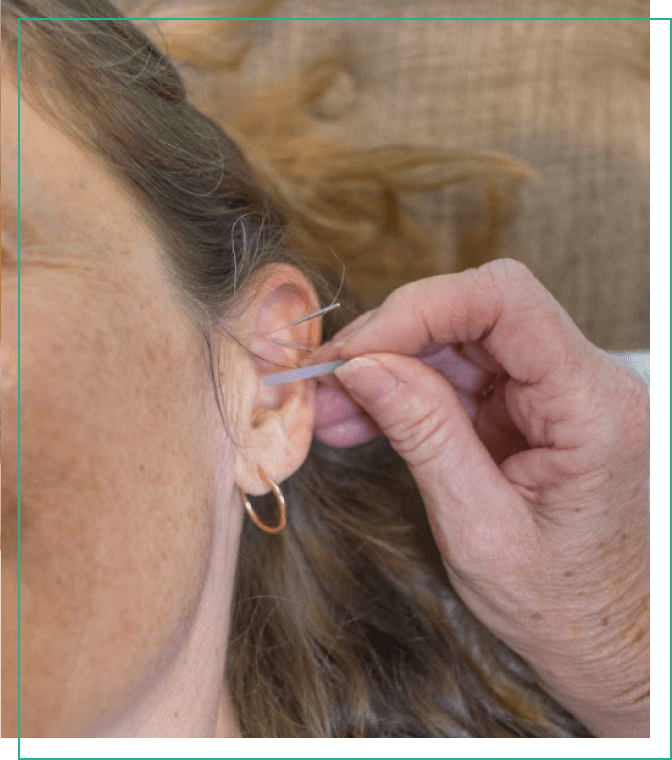Acudetox
Acudetox: A Complementary Therapy for Addiction Recovery at Serenity Light Recovery
Acudetox, also known as auricular acupuncture, is a specialized form of acupuncture that can play a significant role in addiction treatment. This technique, involving the strategic placement of needles in specific points around the ears, aims to balance the body’s energy and alleviate the discomfort associated with withdrawal symptoms. At Serenity Light Recovery, acudetox is one of the many holistic approaches we offer to support clients on their recovery journey from substance use disorders.

The Origins and Development of Acudetox
Acudetox was first developed in 1974 by Dr. Michael Smith and later formalized as a protocol by the National Acupuncture Detoxification Association in 1985. While it stems from traditional Chinese acupuncture, which has been used for thousands of years to treat various mental and physical ailments, acudetox is a specialized technique focused on supporting those struggling with substance dependency.

How Acudetox Works
The process of acudetox involves a certified practitioner placing needles in five specific points around the ears. These points correspond to areas of the body that influence the autonomic nervous system, which is responsible for regulating functions like heart rate, digestion, and respiratory rate. By targeting these points, acudetox helps to calm the nervous system, reduce the severity of withdrawal symptoms, and restore natural, healthy energy.
After the needles are placed, clients typically relax in a quiet setting for 30-45 minutes. This period of relaxation allows the body to absorb the therapeutic effects of the treatment, promoting a sense of calm and well-being. The mental health benefits of acudetox are profound, as it can help reduce feelings of anxiety and depression that often accompany withdrawal.
Acudetox as an Adjunct Therapy in Addiction Treatment
While acudetox is not a standalone cure for addiction, it is an effective adjunct therapy that complements other treatment modalities. The severity of withdrawing from substances can vary widely among individuals, but acudetox has been shown to alleviate many of these symptoms, making the overall detoxification process more tolerable. Additionally, those who incorporate acudetox into their treatment plans are more likely to continue with their rehab program, as the therapy provides a non-pharmacological means of achieving a natural, drug-free “high.”
By offering acudetox alongside other complementary treatments, Serenity Light Recovery provides a comprehensive approach to addiction recovery. Our goal is to address not only the physical aspects of substance dependency but also the mental and emotional challenges that come with it. Through acudetox, we aim to help our clients restore their natural healthy energy, giving them the strength and resilience needed to overcome addiction.

Experience the Benefits of Acudetox at Serenity Light Recovery
At Serenity Light Recovery, we believe in the power of holistic, integrative care. Acudetox is just one of the many therapeutic options available to support your recovery journey. Whether you’re struggling with the severity of withdrawal symptoms or seeking a way to enhance your overall well-being, acudetox can be a valuable part of your treatment plan. Contact us today to learn more about how acudetox and our other holistic therapies can help you achieve lasting recovery.
Start today. Find serenity in the Chaos.
"*" indicates required fields
Acudetox FAQs
Acudetox is a specialized form of acupuncture treatment that involves placing thin needles in specific points around the ears to support individuals struggling with drug and alcohol addiction. This therapy is particularly beneficial during the withdrawal management phase, as it helps to alleviate withdrawal symptoms and promote a sense of calm, making it easier to progress through withdrawal management.
Acudetox can have a profound impact on mental health by reducing feelings of anxiety, depression, and stress. By promoting relaxation and balancing the body’s energy, acudetox helps restore natural healthy energy flow, which can lead to improved emotional well-being during recovery.
Yes, acudetox is often administered in a group setting, allowing participants to experience the benefits of the treatment alongside others. This shared environment can foster a sense of community and support, which is crucial in the management phase of recovery.
Acupuncture helps restore natural healthy energy flow by targeting specific points in the body that correspond to the autonomic nervous system. This process can clear blockages and promote the smooth flow of energy, leading to overall improved physical and mental health.
The benefits of acudetox in substance abuse treatment include reducing the severity of withdrawal symptoms, improving mental health, promoting relaxation, and increasing the likelihood of continuing with the recovery program. It provides a non-invasive, drug-free method to support the body’s natural healing processes.
Yes, acudetox is particularly effective during the early stages of withdrawal management. The treatment can significantly reduce discomfort and anxiety associated with withdrawal, making it easier for individuals to manage and progress through this challenging phase of recovery.
During an acudetox session, thin needles are gently placed in specific points around your ears. You’ll then relax quietly for 30-45 minutes, allowing the treatment to take effect. This process helps to alleviate withdrawal symptoms, promote relaxation, and restore natural healthy energy flow in the body.
Acudetox is a complementary therapy that fits into the broader substance abuse treatment plan by addressing both the physical and mental health aspects of addiction recovery. It works alongside other therapies to enhance the overall effectiveness of treatment, supporting clients as they progress through withdrawal management and the management phase of recovery.
